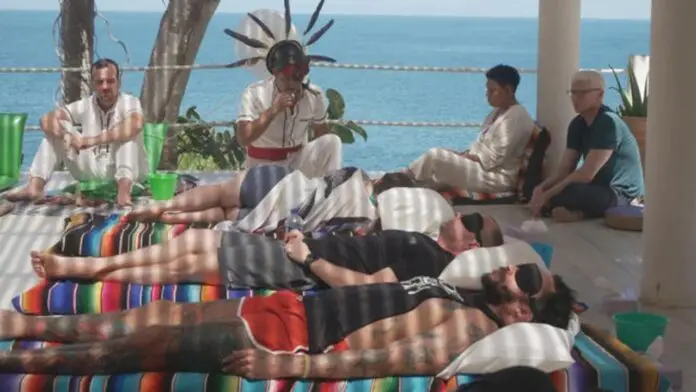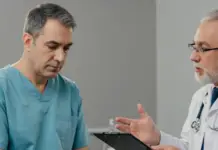Last year, the Veterans Administration announced it would begin funding clinical trials to treat PTSD, depression, and addiction using psilocybin and MDMA. However, it will be years before these treatments are available to patients. Desperate for help, thousands of veterans are attending psychedelic retreats in countries where these drugs are legal, often in indigenous ceremonies. In March, nine veterans traveled to the west coast of Mexico for a psychedelic journey, hoping to ease their pain.
A Journey for Healing
The group of nine veterans, each with invisible wounds, traveled from across the United States to a remote village near Puerto Vallarta for a week-long retreat. Among them was TJ Duff, a former Navy sailor who narrowly escaped death during a suicide bombing on the USS Cole in Yemen. Duff, who has struggled with various therapies, was cautiously optimistic about the retreat.
Facing the Past
Randy Weaver, a police officer and former Army staff sergeant, was diagnosed with PTSD after tours in Bosnia, Iraq, and Afghanistan. He hoped the psilocybin would help him revisit traumatic events from a different perspective. Weaver has tried nearly every treatment the VA offers, including talk therapy, exposure therapy, meditation, and antidepressants.
Organized by Heroic Hearts Project
The retreat was organized and funded by the Heroic Hearts Project, a nonprofit that has helped over 1,000 U.S. veterans with combat-related PTSD access psychedelics. Ed Glover, a firefighter and former Marine, shared his struggles with anger, anxiety, and hyper-vigilance. Michael Giardina, a Navy veteran, revealed his traumatic family history and recent losses.
Psychedelic Ceremonies
To qualify for the retreat, participants had to wean off any antidepressant or anxiety medication and undergo a medical screening. Jesse Gould, founder of the Heroic Hearts Project, emphasized the individualistic nature of psychedelic journeys. The retreat included three ceremonies, two with psilocybin and one with 5-MeO-DMT, a powerful psychedelic secreted from a toad.
Experiences and Reflections
During the psilocybin ceremonies, participants experienced intense emotions and physical reactions. Michael Giardina described it as an exorcism, while Ed Glover felt he was taking the last breath of every victim he had lost. Randy Weaver found spiritual solace, but TJ Duff found the experience unsettling and left the retreat early.
Post-Retreat Support
After returning home, the veterans had several virtual meetings with a Heroic Hearts Project counselor. Ed Glover emphasized the importance of self-care. The Veterans Administration warns against self-medicating with psychedelics but acknowledges the need for further study to provide safe and effective treatments.
The retreat offered a glimmer of hope for some veterans, but the journey to healing remains complex and ongoing. The experiences of these nine veterans highlight the potential of psychedelics as a treatment for PTSD and the urgent need for more research and support.
FDA Rejection and VA Trials
In August, the FDA rejected a pharmaceutical company’s application to use MDMA in combination with therapy as a treatment for PTSD, citing insufficient evidence of safety and efficacy. However, the VA is now conducting nine clinical trials using MDMA and psilocybin to treat PTSD, depression, and addiction. Dr. Shereef Elnahal shared that a small phase two trial by the VA using MDMA and therapy to treat PTSD showed real promise.
Promising Results
Dr. Elnahal reported that 45% of participants in the trial went into complete remission, achieving a “normal emotional state.” This outcome is unprecedented compared to current standard-of-care options like prolonged exposure therapy, cognitive processing, and SSRIs.
Future Prospects
Dr. Elnahal emphasized the need for larger Phase III clinical trials to understand the true adverse events and reproduce these results in larger populations of veterans. He is optimistic that the incoming administration, with nominee Robert F. Kennedy, Jr. for HHS, will support these efforts.
Veterans’ Progress
Nearly a year after the retreat in Mexico, we checked in with the nine veterans who attended. Eight of them reported improved symptoms and described their experience with psychedelics as “life-changing.” Ed Glover, who retired as a firefighter shortly after the retreat, shared that he no longer has thoughts of suicide. Randy Weaver also reported that his suicidal ideations have stopped, and he found peace revisiting traumatic memories during the retreat.
The experiences of these veterans underscore the potential of psychedelics as a treatment for PTSD and the importance of continued research and support. The journey to healing is ongoing, but the progress made offers hope for a brighter future.
Source: CBS News




